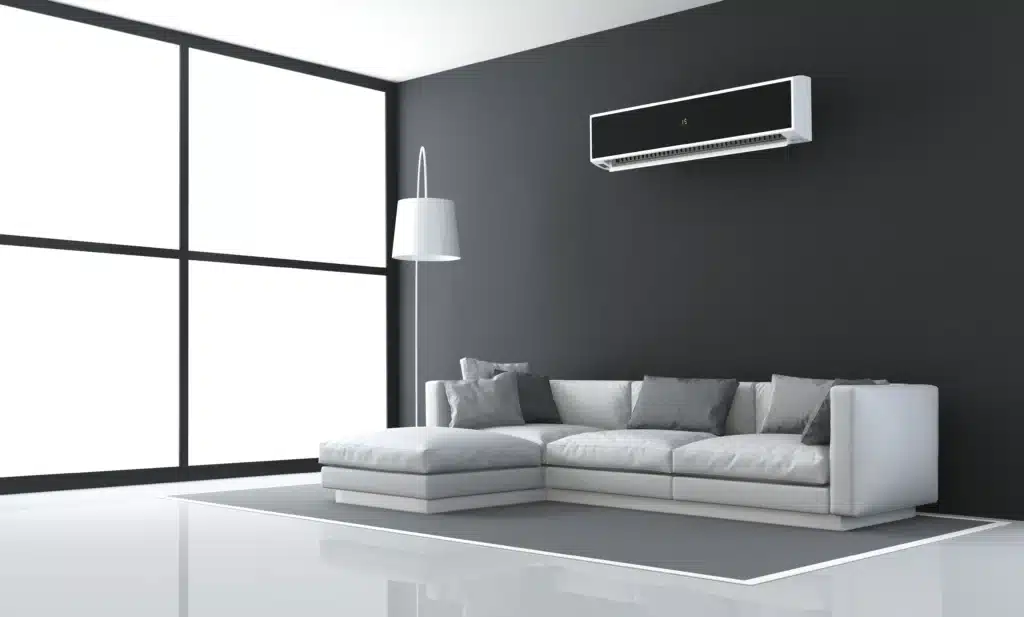Inverter Air Conditioner VS Normal AC

Main Distinction between conventional AC and inverter AC. Although inverter and non-inverter air conditioners may seem similar, they are different. Even though they may seem identical, these two air conditioners vary significantly in several ways. Here are the key distinctions between split-system and inverter air conditioners.
Operation And Compressor Performance
- Energy intake
- Sound
- Expense
- Effect on the environment
Let’s discuss the distinctions between inverter and regular air conditioner in the information below.
Efficiency Of The Compressor And Operation
An inverter air conditioner varies considerably from a non-inverter. The compressor in a conventional split a/c system is only efficient in two modes of operation: on and off. It operates at an established speed till the space gets to the desired temperature, shutting off prior to rebooting and returning to operation as quickly as the room warms up.
For instance, if you set your basic AC unit at 26 degrees Celsius, the compressor will undoubtedly turn off when the room’s temperature level drops to that level. Nonetheless, the compressor will reboot after the area starts to warm up, which may only take a couple of minutes, and the temperature reaches 28 levels Celsius. On the other hand, the compressor runs at various rates, successfully controlling its air conditioning ability. Instead of turning off when the desired temperature level is acquired, the compressor manages to function slower and afterwards picks up speed as the area warms up. When an inverter air conditioning system is set at 26 levels Celsius, for instance, the compressor will slow down as quickly as the desired temperature is reached. It will slowly raise its speed if the space temperature increases by also one level. I have simplified this description to make it simpler for you to understand.
Put, standard air conditioners’ compressors are turned on or off based on the ambient temperature, measured by a simple sensor. On the other hand, an inverter air conditioner’s compressor regulates and modifies its speed as necessary. These air conditioners rely on a sophisticated sensor system to maintain the temperature within a predetermined range. Additionally, compared to conventional ACs, inverter ACs have better compressor efficacy.
Consumption of Energy
Another contentious topic is the use of inverter air conditioning vs conventional AC electricity. Since an inverter air conditioner’s compressor is used regularly as opposed to a standard air conditioner’s compressor, the latter destroys more energy. However, it isn’t true.
Since inverter ACs automate the cooling process and change the power usage as needed, they are much more energy efficient.
AC Diagram
On the other hand, non-inverter AC compressors run in a predetermined manner. Energy use is high since it only uses maximum or no power. Additionally, the compressor motor in conventional ACs requires significant energy to restart. As a result, your energy bill is affected.
If an inverter air conditioning system’s capacity is smaller than needed, running it for an extended period may cause it to use more energy. Due to the compressor’s increased speed, it must work harder.
The Outdoor Air Conditioning Unit
Sound
Have you ever noticed that specific air conditioning systems’ exterior units generate much noise while others don’t?
The explanation is simple: although the compressor motor in conventional air conditioners automatically switches on and off, the motor in inverter air conditioners operates at varying speeds during operation and makes less noise.
The Cost-Efficiency Quandary Explained
As a result of their use of the most up-to-date innovations, including energy-efficient compressors and innovative sensors, inverter AC systems are usually more pricey than conventional ones when purchasing an air conditioning device. The inverter air conditioning differs significantly from traditional air conditioning hereof.
Inverter AC systems may decrease your power usage and, as a result, your electrical energy expenses, making them a long-lasting financial investment, even if they are much more costly. Although basic a/c are more cost-effective, their upkeep expenses are higher owing to the elemental damage prompted by the compressor electric motor cycling on and off quickly.
Consequently, inverter air conditioning systems have a longer life span than typical cooling systems.
Impacts on the Atmosphere
The effect of each a/c unit on the atmosphere is an additional considerable difference between the inverter and non-inverter AC systems. Cooling agents are materials that convert from gas to liquid to make it possible to cool and bring temperatures down to the needed level in all cooling-down systems. R-22 refrigerant, which consists of the ozone-depleting chemical hydrochlorofluorocarbon (HCFC), is frequently made use of in non-inverter air conditioning systems. Due to the fact that it is much more affordable, it is widely used.
As they usually use next-generation cooling agents like R-410A or R-32, inverter air conditioning units are ecologically benign. These refrigerants are not just a lot more energy-efficient but likewise a lot more environmentally benign. In Lahore, do you require a service? With their skilled technological specialists, Afinityms can quickly provide assistance to your doorstep. We are simply a phone call away from you.
FAQ'S
We supply our air conditioner solutions throughout Lahore, guaranteeing timely and effective service to our clients anywhere in the city.
The cost can differ depending on the nature of the service called for. We provide transparent prices and comprehensive price quotes before starting any work.
Our commitment to consumer satisfaction, timely action times, transparent prices, and high-quality artistry established us beside the competition. We prioritize delivering reputable, effective air conditioning remedies customized to our customers' demands.
You can schedule a service appointment by calling our customer support group via phone, email, or website.

We are dedicated to ensuring that each task is successfully completed according to the unique needs of every customer, with a satisfaction guarantee.
- Address: 13-A Guldasht Town, Zarar Shaheed road, Lahore.
- Email: info@afinityms.com
- Phone: 0309-4423312
Follow our newsletter to stay updated about the agency.
© 2023 All Rights Reserved. Powered By EBTECHSOL
